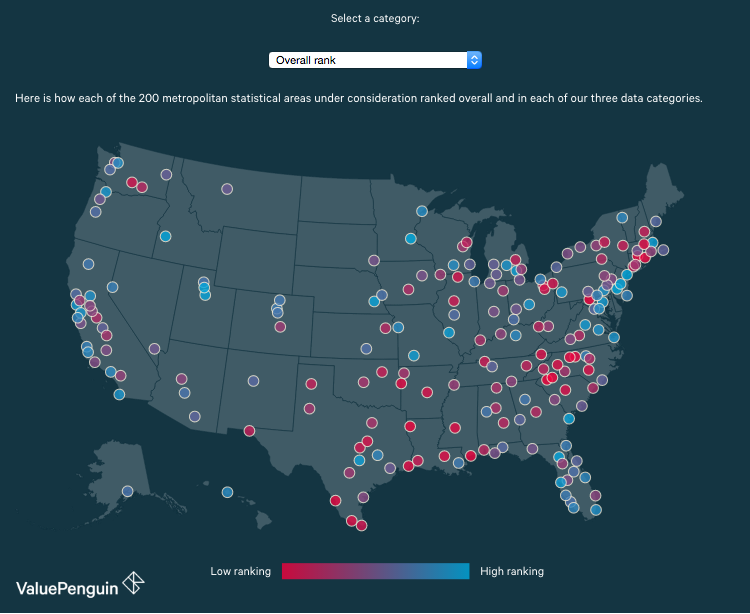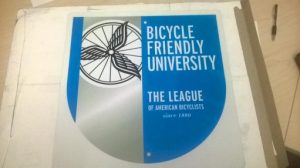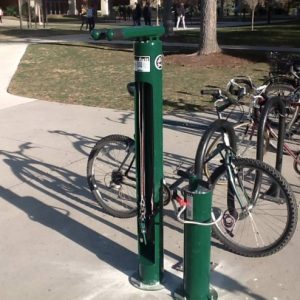
ValuePenguin.com recently ranked Provo as one of the best cities for bikers, surprising some local cyclists.
“I didn’t hear about this,” said Aaron Skabelund, BYU Japanese history professor and biking enthusiast. “I’m a little skeptical that we’re that good.”
He went on to say Provo is decent for bike riding, but there is a lot of room for improvement.
“It’s hard to imagine that we’d be eighth,” Skabelund said.
Skabelund said Fort Collins, Colorado, is one of the better cities for bicyclists, but ValuePenguin ranked the city as No. 57.
Editor of the study Andrew Pentis said “thorough research and data know-how” qualified ValuePenguin to create their rankings.
Pentis admitted there can be blind spots or even gaps in data. Since Provo is home to BYU, much of the bike riding population is made up by students commuting to campus. Pentis said this was not taken into account in the study.
Utah ranks fifth overall as one of the best states for bikers, according to the League of American Bicyclists. Provo and BYU, however, are only at a bronze-level ranking. The rankings include—from lowest to highest—bronze, silver, gold and platinum.

While BYU is currently at a bronze-level ranking, Skabelund said the newly formed BYU bicycle committee is awaiting to hear the results of another application to the League of American Bicyclists for a silver ranking. The committee anticipates the results will come next week.
The fact BYU ranks at all is because of Skabelund and a few other faculty members. Before the BYU Bicycle Committee was formed, the improvements for bikers were all made by what Skabelund refers to as “grassroots movements.”
Skabelund and fellow faculty bicycle enthusiasts wanted to apply to the League of American Bicyclists for a ranking and initially met with resistance from BYU staff. They chose to apply anyway and brought the resulting bronze ranking to BYU Student Life vice president Jan Scharman.
Scharman did not dismiss Skabelund and his colleagues. Instead, she approached director of student wellness Larry Hall this past summer about being the chair of the BYU Bicycle Committee. Although not a cyclist himself, Hall agreed.
Hall said the BYU campus has around 3,500 spots for students and faculty to park their bikes. He also estimated that on any given day, there are around 5,000 bikes on campus.
In contrast to Skabelund, Provo’s ValuePenguin ranking did not surprise Hall. The biggest challenge, Hall said, is coordinating between BYU and the city of Provo about bike lanes and bike parking.
“We already are in pretty good shape,” Hall said.
To prove his point, Hall pointed out the four on-campus bicycle repair stations, which were installed prior to the formation of the BYU Bicycle Committee.

Hall said students can look forward to another covered location near the library to park their bikes this winter, as long as it’s approved.
Elias Flores, a recent BYU graduate, said he is happy Provo is becoming more and more bicycle friendly.
“It’s happening organically,” Flores said.
Flores studied urban and region planning at BYU. He created the Y-Bike event, where local bike shops come onto campus and show people how to fix their bikes for free, as his capstone project. His mentor for the project was Skabelund. Y-Bike just celebrated it’s fourth year earlier in the semester.
Flores and Skabelund both mentioned construction projects happening around Provo, which aim to make it more bicycle friendly. These include construction on 300 South, a large project on Bulldog Boulevard and an upgrade on the Provo River Bike Trail.

Another way Provo is working to become more bicycle friendly is by supporting the Provo Bicycle Collective, which provides a place for residents to fix their bikes and is located in one of Provo’s denser neighborhoods, south of BYU campus.
Skabelund said BYU students should be on the lookout for an app that shows where to park on campus, where to fix your bike and more.
These kinds of projects and improvements take time. However, Skabelund said “the future is really bright for bicycling in Provo.”




